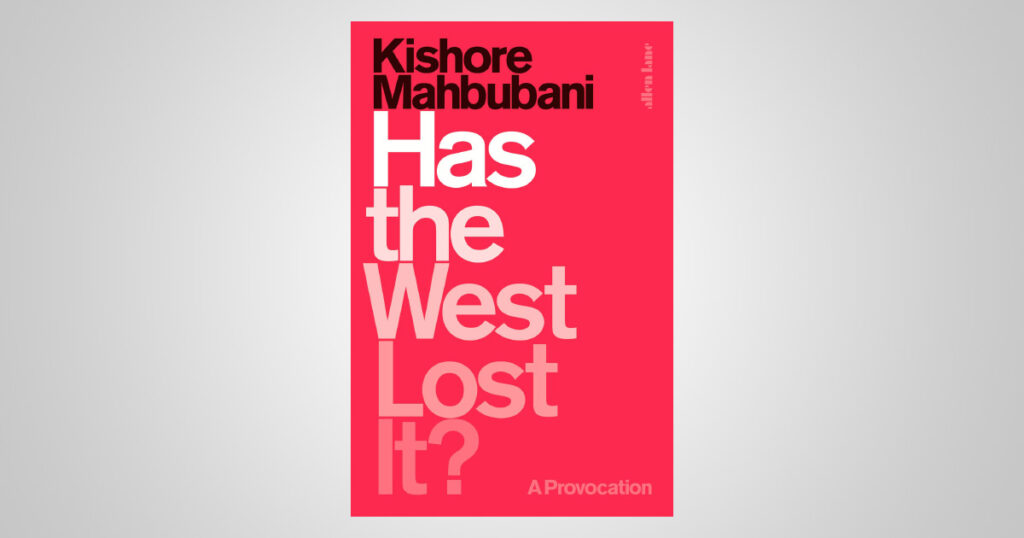
Timeless Reads
In Has the West Lost It? Kishore Mahbubani delivers a bracing wake-up call: the West’s 200-year dominance was a historical blip, now eclipsed by the unstoppable rise of Asia’s giants. From AD 1 to 1820, China and India ruled the global economy; by 2050, they’ll reclaim the top spots, with the “Rest” surging past the West in GDP. While America clings to crusades and Europe dithers,
Beijing builds Belt-and-Road empires and Delhi lifts 800 million from poverty through pragmatic governance. This isn’t decline—it’s rebalancing. A provocative, data-packed plea for the West to adapt before history leaves it behind. Western leaders fail to acknowledge this shift, clinging to outdated notions of superiority.
The West’s legacy—reason, science, and democracy—fueled global progress. However, its insistence on imposing these values via force (e.g., regime change) backfired.
In an era where Western headlines scream of populist upheavals, trade wars, and a fracturing transatlantic alliance, Kishore Mahbubani’s Has the West Lost It? A Provocation (2018) arrives like a diplomat’s polite but insistent knock on the door. At just over 100 pages, this slim volume packs the punch of a heavyweight treatise, drawing on Mahbubani’s storied career as Singapore’s former UN ambassador and founding dean of the Lee Kuan Yew School of Public Policy. Far from a gleeful Eastern schadenfreude, the book is a fraternal admonition: the West, Mahbubani argues, hasn’t “lost it” yet—but it’s sleepwalking toward irrelevance unless it confronts the seismic shifts rebalancing global power.
Mahbubani’s core thesis is refreshingly unapologetic. The West’s dominance since the Industrial Revolution, he posits, was a “major historical aberration.” From AD 1 to 1820, China and India commanded the world’s largest economies; the past two centuries represent an anomalous blip, now correcting itself as Asia surges.
By 2050, he notes, the “Rest” (led by China, India, and Indonesia) will eclipse the West’s share of global GDP. This isn’t decline porn for the sake of it—Mahbubani marshals data with surgical precision, citing UN reports and IMF projections to underscore how the East’s 3.5 billion people are lifting themselves via pragmatic governance, not ideological crusades.
The West’s gift of the scientific method endures, he concedes, fueling global progress in poverty reduction and life expectancy. Yet, hubris blinds it: America and Europe cling to a “rules-based order” they no longer solely define, alienating partners who see hypocrisy in lectures on democracy from nations mired in inequality and gridlock.
The book’s structure mirrors its title’s provocation—short, sharp chapters that dissect Western delusions. Mahbubani skewers the “end of history” myth popularized by Francis Fukuyama, replacing it with a “rebalancing of history.” He contrasts the East’s adaptive realism—Machiavellian, in the best sense—with the West’s moralistic flailing.
Why, he asks, does the U.S. squander soft power on regime-change fantasies while China builds infrastructure in Africa? Why does Europe dither on migration and climate while Asia invests in green tech? These aren’t rhetorical flourishes; they’re backed by anecdotes from Mahbubani’s diplomatic trenches, like the UN Security Council’s paralysis, where Western vetoes stifle reform.
What elevates this beyond polemic is Mahbubani’s optimism. He doesn’t prescribe Eastern mimicry but urges a “course correction”: embrace multilateralism, reform global institutions like the UN and WTO, and prioritize shared prosperity over zero-sum rivalry. “The West has not lost it,” he concludes, echoing the title, “but it will if it fails to adapt.” It’s a lifeline, not a dirge—think of it as the East extending a hand, not a middle finger.
Critics might quibble. Some, like Goodreads detractors, dismiss it as poorly written or overly prophetic, faulting its brevity for skimming nuances like Western innovation’s enduring edge or Asia’s own authoritarian risks. Others, such as Richard Jolly in the Institute of Development Studies review, praise its challenges but lament underemphasis on non-Asian regions like Africa, where aspirations mirror Asia’s yet lag behind. Fair points—the book is Euro-American centric in its gaze, and its Singaporean lens occasionally romanticizes “the Rest” without grappling deeply with China’s debt traps .
Yet these are quibbles in a work that prioritizes provocation over treatise. Hilton Root, reviewing for The Independent Review, calls it a “friendly wakeup call”. Fareed Zakaria, in a blurb, dubs it a “cold shower” for revival; Ian Bremmer hails its strategic insight. In 2025, with Ukraine’s war exposing NATO’s fractures and BRICS eclipsing G7 clout, Mahbubani’s words feel prophetic.
Ultimately, Has the West Lost It? isn’t for the complacent. It’s a mirror for policymakers, a manifesto for globalists, and a reminder that history doesn’t end—it pivots. The West’s genius lies in reinvention; ignore this Eastward tilt at peril. Mahbubani doesn’t gloat—he grieves a sibling’s folly. Read it, then act. The aberration ends; enlightenment beckons.



